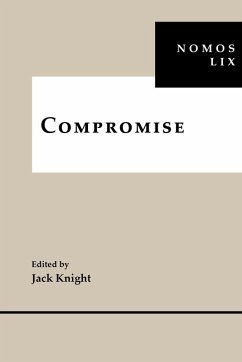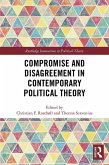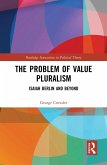A distinguished group of scholars explores compromise in contemporary affairs
Do lawmakers have a greater ethical responsibility to compromise than ordinary citizens? How does one rectify what is at stake when lawmakers concede to compromise for the sake of reaching resolution? Is compromise necessarily equalizing and is it a reasonable mode of problem solving and dispute resolution? In this latest installment from the NOMOS series, distinguished scholars across the fields of political science, law, and philosophy tackle the complex set of questions that relate to the practice of compromise and its implications for social and political life in modern societies.
The volume, edited by Jack Knight, brings together a range of perspectives in both disciplinary and substantive terms on representation, political morality, disagreement, negotiation, and various forms of compromise. The ten essays reflect a variety of considerations across interdisciplinary lines, and provide a new and thought-provoking discussion of the policy, practice, and philosophy of compromise, covering a number of specific topics including alternative dispute resolution (ADR) and conscientious objection.
Examining these issues and more, Compromise offers new and thought provoking insights into the pressing issue of the importance of compromise in social and political affairs.
Do lawmakers have a greater ethical responsibility to compromise than ordinary citizens? How does one rectify what is at stake when lawmakers concede to compromise for the sake of reaching resolution? Is compromise necessarily equalizing and is it a reasonable mode of problem solving and dispute resolution? In this latest installment from the NOMOS series, distinguished scholars across the fields of political science, law, and philosophy tackle the complex set of questions that relate to the practice of compromise and its implications for social and political life in modern societies.
The volume, edited by Jack Knight, brings together a range of perspectives in both disciplinary and substantive terms on representation, political morality, disagreement, negotiation, and various forms of compromise. The ten essays reflect a variety of considerations across interdisciplinary lines, and provide a new and thought-provoking discussion of the policy, practice, and philosophy of compromise, covering a number of specific topics including alternative dispute resolution (ADR) and conscientious objection.
Examining these issues and more, Compromise offers new and thought provoking insights into the pressing issue of the importance of compromise in social and political affairs.
Dieser Download kann aus rechtlichen Gründen nur mit Rechnungsadresse in A, D ausgeliefert werden.









